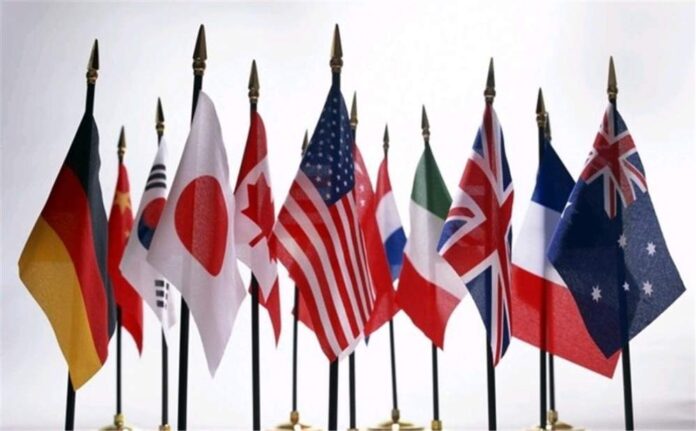As the United States continues to play a central role in global politics, its foreign policy decisions have significant repercussions not just for its allies, but for nations across the globe. In 2024, with ongoing geopolitical tensions, economic shifts, and the emergence of new global leaders, US foreign policy remains a key topic of discussion. This article examines how the US’s diplomatic, military, and economic policies are influencing international relations, with a particular focus on key regions such as Europe, Asia, and the Middle East.
Shifting Alliances: The US and NATO in 2024
One of the most prominent aspects of US foreign policy in 2024 is its relationship with NATO. As the alliance strengthens its presence in Eastern Europe due to the ongoing Russian-Ukrainian conflict, the US has reaffirmed its commitment to NATO’s collective defense. The US’s role in NATO is crucial not just in terms of military support, but also in shaping the alliance’s broader political and economic strategies.
The US has been at the forefront of bolstering sanctions against Russia, providing military aid to Ukraine, and advocating for stronger diplomatic ties between NATO members. However, this commitment comes at a time when some European nations are questioning their dependency on the US for military security and looking to bolster their own defense capabilities. These shifting dynamics raise questions about the future of NATO and the US’s place within it.
US-China Relations: A Tense Partnership in the Asia-Pacific
Another significant aspect of US foreign policy in 2024 is its complicated relationship with China. The US and China are major global powers, and their political, economic, and military interactions have far-reaching consequences for the rest of the world.
In 2024, tensions between the two nations have escalated, particularly in the Asia-Pacific region. Disputes over trade, technology, and Taiwan continue to strain relations. The US has taken a firm stance on supporting Taiwan’s sovereignty and has imposed several sanctions on Chinese tech companies due to national security concerns. Meanwhile, China has responded with its own set of economic retaliations, and has expanded its military presence in the South China Sea.
The competition for global dominance in industries like technology, energy, and artificial intelligence has only intensified, and the US’s approach to these issues will play a pivotal role in shaping the global balance of power in the coming years.
The Middle East: Navigating Complex Alliances and Conflicts
In the Middle East, the US’s foreign policy in 2024 continues to be shaped by its alliances with key regional powers, as well as its efforts to stabilize the region. Despite having reduced its direct military presence in Iraq and Afghanistan in recent years, the US still maintains significant influence in the region, particularly through its relationships with countries like Saudi Arabia, Israel, and the United Arab Emirates.
The US’s involvement in the ongoing Israeli-Palestinian conflict remains a critical aspect of its foreign policy, with President Biden reaffirming the US’s support for Israel’s right to self-defense while also encouraging a two-state solution for Palestine. Additionally, the US is navigating tensions in Iran, where nuclear talks and sanctions are still central to diplomatic discussions.
In Syria, the US is engaged in efforts to combat ISIS and stabilize the region while dealing with the complexities of working alongside local Kurdish forces, which have their own political agenda. The US’s involvement in the Middle East is also heavily influenced by its oil interests, energy security, and its desire to counterbalance the influence of Russia and China in the region.
Africa: A Growing Focus for US Foreign Policy
While historically the US has had less engagement in African geopolitics compared to other regions, 2024 sees a renewed focus on Africa as a key part of US foreign policy. As China increases its investments and partnerships across the continent, the US is seeking to strengthen its presence through diplomatic, economic, and military cooperation.
The US’s African strategy is multifaceted, focusing on promoting trade, investment, and democratic governance. Programs like the African Growth and Opportunity Act (AGOA) seek to deepen economic ties between the US and African nations, while the US military maintains a presence in the region to combat terrorism and instability, particularly in countries like Somalia and the Sahel.
The Impact of US Domestic Politics on Foreign Policy
US foreign policy in 2024 is also being shaped by domestic political factors. With the 2024 presidential election on the horizon, the rhetoric and strategies of candidates can have significant implications for the country’s international relations.
The debate over the US’s role in global politics is a key point of contention between political parties. Some candidates advocate for a more isolationist approach, focusing on domestic issues and reducing the country’s involvement in overseas conflicts. Others argue for maintaining a strong international presence to protect global stability and promote democratic values.
As the political landscape shifts, so too does the direction of US foreign policy. The outcome of the election will have far-reaching consequences, not only for the US but for the entire international community.
Looking Ahead: US Foreign Policy in a Multipolar World
As we look toward the future, the global political landscape is becoming increasingly multipolar, with power shifting away from the US as new players rise on the world stage. The US’s ability to maintain its global influence will depend on how it adapts to these changes and how effectively it engages with emerging powers.
In 2024, the US faces a complex and ever-changing international environment. How it navigates its relationships with key players like China, Russia, and Europe will be crucial in determining its standing in the world. Whether the US continues to be the dominant global power or cedes influence to other nations is yet to be seen. However, one thing is clear: US foreign policy will remain a critical factor in shaping the geopolitical order for years to come.


